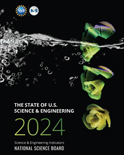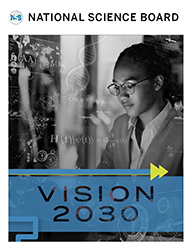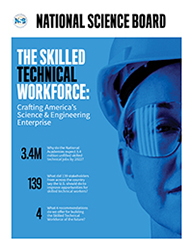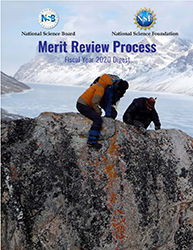Committee on Strategy and Budget (CSB) - Task Force on Cost Sharing
Charge (NSB-07-110 - October 9, 2007 - Revised July 15, 2008)
Statutory Basis
"The Board shall render to the President and the Congress reports on specific, individual policy matters related to science and engineering and education in science and engineering, as the Board, the President, or the Congress determines the need for such reports." (42 U.S.C. 1863(j) (2);and HR 2272)
Action Recommended
The National Science Board (Board) will examine National Science Foundation (NSF) cost sharing and institutional commitment policy, specifically focusing on the consequences of the Board's 2004 revision to cost sharing policy that eliminated NSF program-specific cost sharing requirements and required only the statutory one percent of sharing.
Background
The Board has been involved with the issue of 'cost sharing' since the Bureau of the Budget (predecessor of the Office of Management and Budget [OMB]) requested on September 15, 1954 assistance in setting uniform policies for indirect costs for research grants from Federal agencies. As defined in OMB Circular A-110, cost sharing refers to the contribution of quantifiable and auditable assistance from non-NSF (and non-Federal) sources to NSF-supported activities. Congressional statutory requirements dictate that the recipient of an NSF award resulting from an unsolicited proposal cost share a minimum of one percent on the project or a minimum of one percent of the aggregate costs of all NSF-supported projects subject to the statutory requirements. Prior to October 2004, specific programs could set cost sharing requirements for solicited proposals in addition to the statutory one percent requirement. Revisions to the Board's cost sharing policy in 1999 and 2002 made it clear that cost sharing is an eligibility criterion rather than a review criterion.
On October 14, 2004, the Board approved its most recent cost sharing policy revision, eliminating NSF program-specific cost sharing requirements and requiring only the statutory one percent of sharing. This revision eliminated cost sharing as an eligibility requirement for grant proposals. This decision may have produced some unintended consequences. The America COMPETES Act (H.R. 2272), signed into law on August 9, 2007, directed the Board to evaluate and report to Congress on the impact of its policy to eliminate cost sharing for existing programs that were developed around industry partnerships and that historically required industry cost sharing. It further directed the Board to consider the impact that this cost sharing policy has on the initiation of new programs for which industry interest and participation are sought.
Policy Objectives
The ad hoc Task Group on Cost Sharing recommends that the Board approve the creation of a formal Task Force on Cost Sharing under the Committee on Strategy and Budget (CSB). The following issues will be analyzed and discussed before constructive policy recommendations are brought to CSB and the full Board:
- Requirement of cost sharing in NSF programs, with specific emphasis on programs developed around industry partnerships and programs that historically required cost sharing.
- Role and impact of institutional commitment in NSF programs, defined as voluntary cost sharing (cash or in-kind) provided by an institution for NSF proposals.
- Impact of cost sharing and/or institutional commitment in the review process of proposals for NSF awards.
- Mechanisms and workload, by both NSF and grantee institutions, involved with verifying expenditure of committed non-NSF funds.
- Impact of cost sharing and/or institutional commitment on broadening participation in NSF-funded research.
The task force will seek to contextualize its discussions and recommendations, and the analysis used in developing those recommendations, in broader terms of indirect costs and the overall costs borne by institutions in conducting research. The task force will make use of objective, quantitative data available from NSF and previous studies on cost sharing, and will seek to assemble new objective, quantitative information from various constituency groups. The task force will analyze this information in the context of differing philosophies and objectives by involving constituencies that have different views on cost sharing.
Based upon the work of this task force, the Board will then provide guidance to NSF and make recommendations to the Administration and Congress on future policy and actions with respect to cost sharing and institutional commitment policy for application at NSF.
Logistics
A series of workshops and roundtable discussions will be used by the task force to gather relevant information from academic and other NSF-funded institutions (to include faculty, vice presidents/chancellors for research, and presidents), representatives from U.S. Federal agencies, legislators, and NSF staff, as well as members of the broader scientific and industry communities. Members of the task force may also attend previously scheduled meetings/conferences of academic/scientific societies to discuss cost sharing with various stakeholder groups. A survey on cost sharing may be developed by the task force, within appropriate federal regulations, and distributed to key stakeholders. The purpose of these activities will be to better inform the task force as it develops draft cost sharing policy for full Board review. The Board will issue a first report to Congress specifically addressing the issues raised in the America COMPETES Act. It is anticipated that the task force will produce a second report that synthesizes the contributions from its own deliberations, previous studies, and survey results, and that it will present recommendations regarding cost sharing for application at NSF. The second Board report will be made available on the Board Web site for all interested parties. The following is a tentative general timeline for task force activities:
| October 3, 2007 | Discussion of Task Force charge and approval by full Board |
| October-November | Finalize plans for surveying stakeholders; execute stakeholder survey including quantitative analysis |
| November-January | Workshops and roundtable discussions and/or Board member/staff attendance at scheduled academic/scientific society conferences to discuss cost sharing with stakeholders |
| December 5 | Task Force meeting as part of Board meeting to discuss survey data and possible recommendations; provide initial thoughts to Board |
| Early January, 2008 | Draft preliminary report of initial recommendations shared via email and conference call to further discuss recommendations |
| Mid-January | Initial review and comment of preliminary report by Board via e-mail |
| Late January | Revise draft first report and submit to Board |
| February 6 | Board votes on first report for Congress |
| Early/mid-February | First report delivered to Congress |
| July | Workshops to discuss cost sharing with stakeholders |
| August-October | Federal Register notice inviting comment from stakeholders on issues related to cost sharing and additional outreach to institutions, industry, and government |
| August-December | Draft preliminary second report |
| December | Board votes on draft second report |
| December-January | Public comment period for second report |
| January, 2009 | Revise draft second report and submit to Board |
| February | Board votes on second report |
| February, 2010 | Board discharges Task Force |
A regular and proactive outreach effort to communicate task force activities will be implemented throughout the duration of the task force life. The task force expects to conclude its activities within 28 months from the date that formation of the task force is approved. The Board Office will serve as the focal point for coordination and implementation of all task force activities.
Task Force Members
| Chairman: | Dr. Kelvin K. Droegemeier |
| Members: | Dr. Mark R. Abbott Dr. Camilla P. Benbow Dr. Jon C. Strauss Dr. Thomas N. Taylor Dr. Richard F. Thompson |
| Executive Secretary: | Ms. Jennifer Richards |




